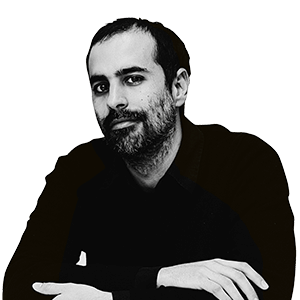The director of 'Parasites' returns with an anti-Trump comedy
Bong Joon-ho kills Robert Pattinson and continually resurrects him in 'Mickey 17', which premiered at the Berlinale


Special correspondent for the Berlin Film FestivalIt seems like an eternity ago the celebrated victory of thriller Korean Parasites at the 2020 Oscars, perhaps because only a few days later the pandemic broke out and everything that preceded it belongs to another world. However, five years later everything is still the same as in those unforgettable Oscars: Bong Joon-ho's smile, his presence alongside actress Sharon Choi and a surprising, politically incisive and memorably staged film. In the case of Mickey 17, presented this Saturday at the Berlinale, is of an interstellar scale: the return of the Korean director is a science fiction comedy set in a spaceship that travels to space to colonize a distant planet, and the protagonist is a Robert Pattinson given over to comedy with a display of grimaces and physical humor reminiscent of both Buster Keaton and Jim Carrey.
Mickey Barnes, Pattinson's character, makes a mistake that many of us can relate to: not reading all the fine print in the contract he signs to be a worker regenerable in a spaceship, where he will be given the most dangerous and risky jobs, since, when he dies, his body will reprint with his memory intact. Thus, Mickey and his successive incarnations face with resignation a cycle of death and resurrection from which the film fully exploits the comic potential but which, inevitably, leads the protagonist to an existential crisis aggravated when, once on the destination planet, two versions of 1 and 7 are accidentally generated. Why should he survive when his previous incarnations have died, what is there in him that makes him worthy of living – Pattinson has pointed out – And this is a question that many people must deal with after experiencing a traumatic loss... Or simply to be alive."
The reflection on the depersonalization of the worker in savage capitalism guides the political discourse of Mickey 17, a subtext that takes the form of a direct criticism of Trumpism through the character played by Mark Ruffalo: the actor plays a narcissistic and ridiculous politician who leads the expedition with gestural and vocal mannerisms that openly point to Donald Trump, an idea reinforced by details such as the way he twists the facts. At a press conference, however, Bong Joon-ho did not want to make explicit the criticism of the American president. "I wrote the character of Mark as an amalgam of bad dictators and politicians that we have had in Korea and other places, but not thinking of anyone in particular. I have based myself on the past, but it seems that history tends to repeat itself."
Despite the joy of seeing a film with so many visual ideas and that breathes creative freedom in all its frames, Mickey 17 It is not on par with the Korean masterpieces and is unbalanced in some parts. The work of the supporting actors is also jarring, especially the histrionics festival of Ruffalo and Toni Colette, who perhaps the director could have kept on a shorter leash. And although comedy is not his strong point, Pattinson gives his all to capture with his multiple interpretation the confluence of tones of the cinema of the director of The host, so fond of interweaving frenetic action, drama and comedy. Pattinson, in fact, has compared it to the "jarring shifts in tone of"anime Japanese, where the feeling can change from zero to one hundred in a second." And there is something to it, Mickey 17, an animated film shot with real images, with its manic energy and narrative virtuosity.
Love, sex and geopolitics with Jessica Chastain
"I am a positive person, even if people think otherwise when they see my films," said Michel Franco at the presentation of the dark and disturbing political fable Dreams, a serious contender for the Golden Bear at this Berlinale. The film is a love story between a wealthy patron from San Francisco and a young Mexican ballet prodigy who crosses the border illegally to meet his American lover. They are complex characters and, at the same time, avatars of their countries and their asymmetrical and abusive power relationship. "It is an undeniably political film that talks about how the United States and Mexico need each other and must respect each other," said the protagonist, an extraordinary Jessica Chastain who had never played scenes with such a sexual charge as in Dreams. "What mattered to me was the meaning of these scenes, how they advanced the story," the actress explained. "Michel, Isaac and I choreographed them, and in that sense it's great to work with a dancer." Chastain is referring to Isaac Hernández, the great Mexican ballet star, with no previous acting experience. "If there is ballet in the film, it's for him, he's the best dancer in the world," Franco said. "In Mexico, ballet didn't exist and now Isaac is able to bring 10,000 people to one of his shows."
